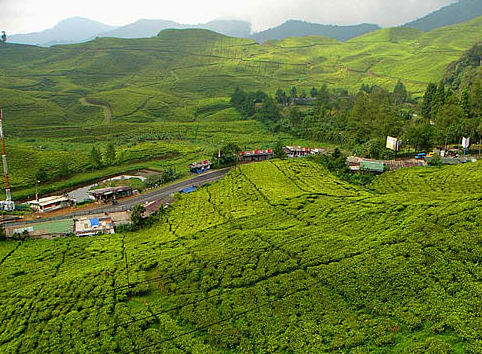The reason that the British came to Africa was to accumulate wealth for themselves. All this talk of spreading civilization or Christianity was just a false pretext to plunder Africa’s precious resources for the benefit of the British citizenry.
The land situation in England is exactly as it was in the 1800s, regular Britons called ‘commoners’ are still landless today as they were back then. Fast forward to 21st century and Britons are still landless and the ruling class known as the aristocrats own it all. This is the structure that they want to preserve in Africa. There are some lands in Britain that have been held by the same family since William the Conqueror. The owners are not selling so commoners will never ever acquire land.
- Two-thirds of land in the UK as a whole – 40m acres – is owned by 0.36% of the population
- 24m families, meanwhile, share the “urban plot” of 3m acres
“When once asked how young entrepreneurs might succeed in Britain, the late Duke of Westminster, (owner of 131,000 acres, including much of London’s Belgravia and central Liverpool), replied “make sure they have an ancestor who was a very close friend of William the Conqueror” translation accept your fate in life serf and become satisfied with your lot in life because of who your ancestors are.
Duke of Westminster Gerald Grosvenor (owner of 131,000 acres, including much of London’s Belgravia and central Liverpool),
The idea that Africans can and should own their own land is an anathema to the British. The simple reason is that British people themselves own 3m acres on average. They therefore cannot accept that Africans should have the right to property ownership. There are many in Britain who still believe in British superiority and African inferiority so when Africans own land this changes the power dynamic.
The Royal Niger Company, Imperial British East Africa Company, and British South Africa Company were all formed to acquire land for the British in Africa. Under imperialism the British were expected to own land at the expense of Africans. In Kenya the land in the Rift Valley; which is the most fertile in the country belonged to the Kikuyu and Kamba. The British settler wanted this fertile land of Laikipia . The British settlers wanted land for themselves for agriculture and banished the Kikuyu and Kamba the original owners of the land.
The Kikuyu and Kamba were forcibly moved to ‘Reserves’. This was the same for Africans in Malawi, Tanzania, Zimbabwe, Zambia and all other British colonies in Sub-Saharan Africa.

Any Kikuyu and Kamba who remained on the land were described as squatters. Squatters were expected to work for the new European settlers. The Kikuyu and Kamba who were lived on the land were ordered to pay rent. If they did not then they were forced to work in lieu of rent. This tactic by European settlers was used in many African nations including South Africa and Zimbabwe.
In Zimbabwe in the year 1930, through the Land Apportionment Act, the white settler farmers were able to take 49 million acres of the most productive land while Africans were placed in 7.5 million acres of the worst land known as ‘reserves’.
When Africans now say that they want to get their land back Britain is up in arms. In the mind of the average Briton an African should not own more land than a Briton. To them this is not the natural order of things. Africans are now owning their land and this is the reality that Britons must accept. They are satisfied with their 3m for centuries and should not hate on Africans possessing their land and creating wealth.





One response to “Reasons Britain Hates African Land Ownership”
Land ownership is everything . This is surprising that ordinary British do not own any land. But to each his own. We will focus on how to earn wealth from agriculture and to feed our selves. I am always embarrassed when i hear that we as Africans are unable to feed ourselves. We need fertile land and innovative farming to grow our own crops.